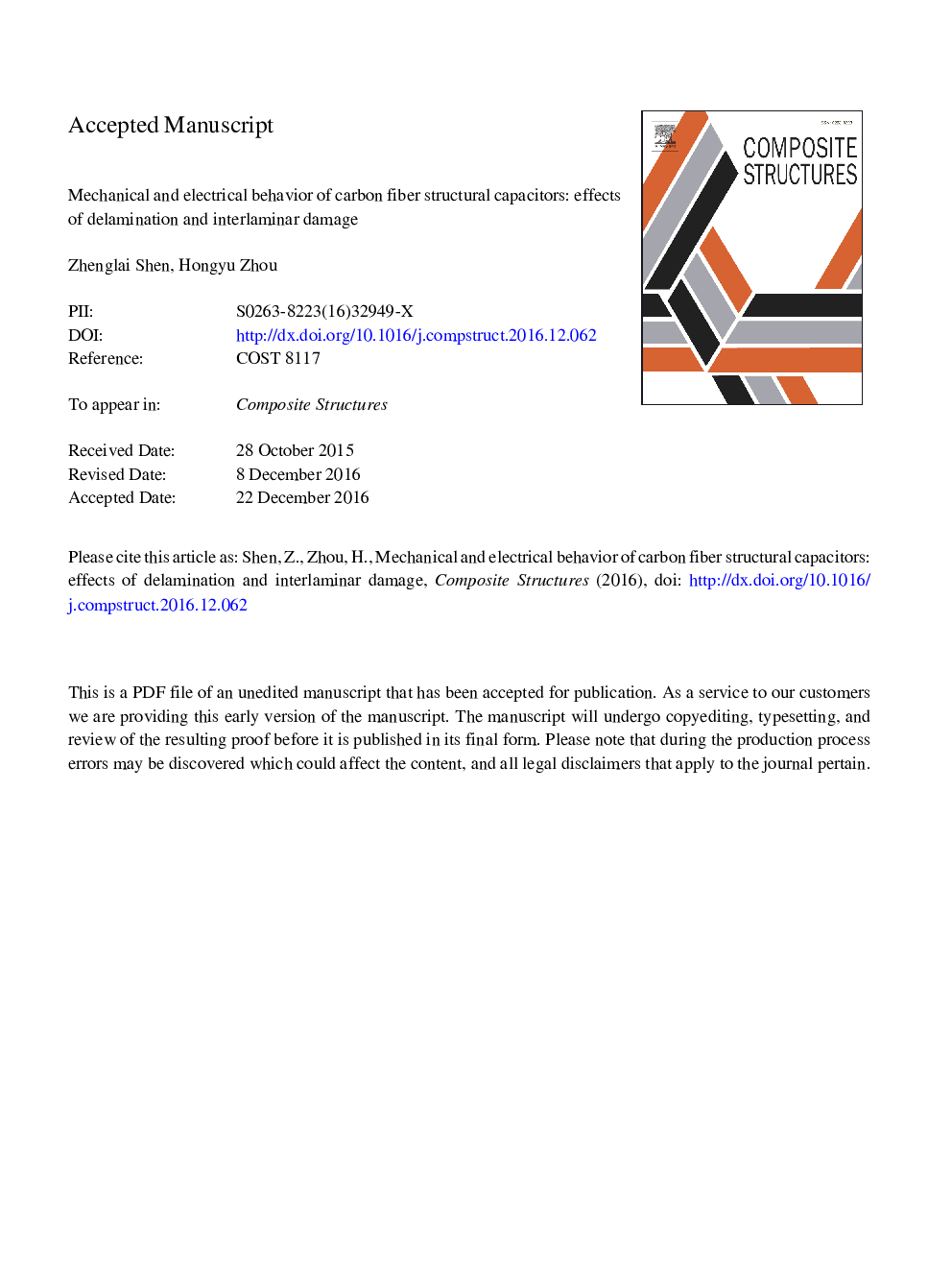| Article ID | Journal | Published Year | Pages | File Type |
|---|---|---|---|---|
| 4912289 | Composite Structures | 2017 | 37 Pages |
Abstract
This paper studies the effects of delamination and interlaminar damage on the mechanical and electrical performance of carbon-fiber structural capacitor (CFSC) materials. An experimental program was carried out to characterize the mechanical behavior and electrical capacitance change of CFSCs, where unidirectional tension and double cantilever beam tests were performed on specimens having three dielectrics and four layup configurations. The degradation of electric capacitance was measured as a function of the applied mechanical load. Generally, the load-bearing capacities of CFSCs are lower than their carbon-fiber reinforced epoxy counterparts. Interlaminar damage initiates at the dielectric/carbon fiber interface during early stages of loading, causing capacitance decay and premature laminate failure. The dielectric material and layup configuration have impacts on both mechanical and electrical properties of the CFSC. In general, thinner dielectric separators lead to higher nominal strength and higher initial capacitance. Moreover, it was found that the load-induced capacitance deterioration is mainly attributed to interlaminar damage, and the electrical capacitance retention under loading depends largely on the interfacial fracture toughness between the separator and matrix polymer. Lastly, a capacitance deterioration model (CDM) was derived to calculate the capacitance decay taking account factors including the separator material type, fiber weave-pattern, and interfacial cracks propagation.
Keywords
Related Topics
Physical Sciences and Engineering
Engineering
Civil and Structural Engineering
Authors
Zhenglai Shen, Hongyu Zhou,
